Today’s Current Affairs: 28th January 2023 for UPSC IAS exams, State PSC exams, SSC CGL, State SSC, RRB, Railways, Banking Exam & IBPS, etc
Table of Contents
Veer Gatha 2.0 Contest:

Defence Minister Raj Nath Singh distributed prizes to the winners of the Veer Gatha 2.0 contest.
- The minister awarded the winners with a medal, certificate, and Rs 10,000 cash prize.
- During the felicitation, education minister Shri Dharmendra Pradhan, and CDS Staff General Anil Chauhan were also present.
- Also, the Chief of Navy, Chief of Army, and the Chief of Air Force were also present.
- The contest is jointly conducted by the Ministry of Defence and the Ministry of Education.
- It is in line with National Education Policy, 2020.
- The project develops patriotism among Indian students.
- Also, it develops an interest to join the Indian Army.
Krishi Mahotsav:

To train The farmers in their fields, the Ministry of Agriculture and Farmer Welfare recently conducted the Krishi Mahotsav. During the event, the ministry conducted exhibitions and gave training to farmers. The event was held in Kota, Rajasthan.
- More than 5,000 farmers participated in the program
- The farmers were trained in the following program
- Horticulture
- Agriculture
- Animal Husbandry
- Organic Farming
- A special workshop was held on Agriculture Infrastructure Fund
- The training was also given on how to use drones and other technologies in agriculture
Aditya – L1 Solar Mission : ISRO

The Indian Space Research Organization is working on a space project Aditya L1 that will study the sun.
- Recently, the ISRO chairman announced that the spacecraft is to be launched in June or July this year.
- The Aditya spacecraft will study solar magnetic storms and the impact of the solar atmosphere on the earth.
- The spacecraft is to study the following:
- Solar Winds: These winds are created due to the expansion of the sun’s plasma
- Photosphere and Chromosphere of the sun
- Corona of the sun
- Energetic particles of the sun
National Child Science Congress: Theme
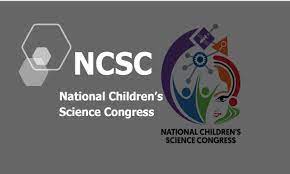
The National Council for Science and Technology operating under the Department of Science and Technology recently organized the National Child Science Congress, 2023.
- The congress was hosted by the Gujarat Council of Science City. It was held in Ahmedabad, Gujarat.
- The theme of the congress was “Understanding Eco System for Health and Wellbeing”
- The National Child Science Congress is being held in the country since 1993
- Children of age group 1 to 17 years attend the congress
- During the congress, children exhibit their innovation
- The focus of the congress is to cultivate problem-solving skills in students.
- During the congress, the participants will frame solutions to societal problems
T+1 Settlement:

After China, India will become the second country in the world to start the ‘trade-plus-one’ (T+1) settlement cycle in top-listed securities.
- In simple terms, T+1 settlement means that securities transactions will reflect in the demat account after a day instead of two days now under the T+2 cycle.
- If an investor buys a stock on Thursday, it would be shown in the demat account on Friday.
- It Reduces risks and frees up capital required to collateralise the risk and reduces the number of outstanding unsettled trades at any point in time
- Foreign investors operate from different geographies leading to time zone differences, information flow processes, and foreign exchange problems.
- Foreign investors said they would also find it difficult to hedge their net India exposure in dollar terms at the end of the day under the T+1 system.
- The United States, United Kingdom and Eurozone markets are yet to move to the T+1 system
Etikoppaka Toys Craftsman : Selected For Padma Awards
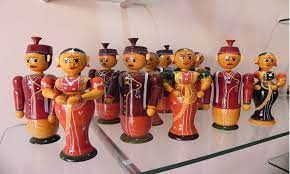
An Etikoppaka toy craftsman is one among the seven persons from Andhra Pradesh who have been selected for this year’s Padma Awards.
- Etikoppaka toys are traditional toys made by artisans of Etikoppaka village located on the banks of Varaha River in Visakhapatnam district of Andhra Pradesh.
- These toys are made out of wood and are coloured with natural dyes derived from seeds, lacquer, bark, roots and leaves.
- The artisans mainly use the wood from trees known as ‘ankudu’ (Wrightia Tinctoria) that is soft in nature.
- These toys have no sharp edges. They are rounded on all sides.
- Etikoppaka toys received Geographical Indication (GI) tag IN 2017.
- While making the Etikoppaka toys, lac, a colourless resinous secretion of numerous insects, is used.
- The already prepared vegetable dyes are further mixed to the lac, during the process of oxidation.
- After this process, the end product obtained is rich and colored lacquer.
- The lac dye is used for decorating the Etikoppaka toys, which are exported all over the world.
- Thus, the toys are also called lacquer toys because of the application of lacquer coating.
Open Market Sale Scheme:
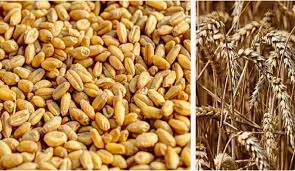
The Food Corporation of India (FCI) will off load 30 LMT wheat from the Central pool stock to the market through various routes under the Open Market Sale Scheme (Domestic).
- Wheat will also be offered to State Governments/UTs for their schemes without e-auction.
Open Market Sale Scheme (OMSS):
- FCI sells surplus stocks of wheat and rice at predetermined prices through e-auction in the open market from time to time to enhance the supply of food grains.
- The purpose of OMSS is to dispose of surplus stocks of wheat and rice held by FCI, and to regulate the prices of wheat in the open market.
- FCI conducts weekly auctions for the OMSS for wheat on the platform of the National Commodity and Derivatives Exchange Limited (NCDEX).
- NCDEX is a commodity exchange platform in India that provides a platform for trading in various agricultural and other commodities.
Food Corporation of India:
- The FCI is a government-owned corporation that manages the food security system in India.
- It was established in 1965 under the Food Corporation’s Act 1964 with the objective of ensuring adequate availability of food grains throughout the country, and to maintain price stability in the market.
M1 Abrams Tanks:
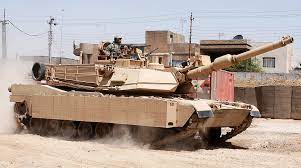
United States President Joe Biden recently announced that he will send 31 state-of-the-art M1 Abrams battle tanks to Ukraine to help its troops push back Russian forces.
- M1 Abrams tanks is the United States main battle tank.
- The first M1 tank was manufactured by General Dynamics Land Systems (GDLS) in 1978 and was delivered to the US Army in 1980.
- It was named in honor to General Abrams, commander of US forces during the Vietnam War.
- The export version of the Abrams is used by the armies of Australia, Egypt, Iraq, Kuwait, Poland, and Saudi Arabia.
Features:
- It uses a powerful and complex turbine engine that produces 1,500 horsepower and requires four persons to operate.
- It is one of the heaviest tanks in service at nearly 62 metric tons.
- The M1 tanks have a maximum speed of 45
- It can destroy tank-size targets at a range of 2 km while firing on the move.
- In modern versions of the Abrams tank, there are layers of depleted uranium armour which provides substantial protection to those inside.
Halwa Ceremony:
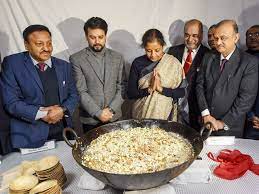
The ‘halwa ceremony’, which marks the final stage of the Union Budget-preparation, took place recently, at the Finance Ministry headquarters in New Delhi.
- ‘Halwa’ ceremony is a customary pre-Budget event that formally flags off the printing of different documents associated with the Budget and marks the final stage of the Union Budget-preparation.
- It involves the preparation of the traditional dessert ‘halwa’ in a massive kadhai (wok) which is then served to the entire staff in the Finance ministry.
- The finance minister gives the go-ahead by stirring the kadhai and serving the sweet to officials.
- It takes place in the basement of the Finance Ministry’s North Block in Central Delhi, where a special printing press is located.
- After the ‘halwa ceremony’, officials involved in the Budget-making process are ‘locked in’ at the North Block.
- They are kept in absolute isolation and completely cut off from the outside world till the finance minister finally presents the Budget.
- The “lock-in” which follows the ‘halwa ceremony’ is observed to maintain the secrecy of the Budget preparation process.
Kelp Forests:
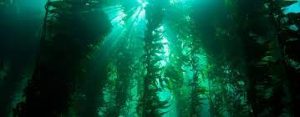
A recent study published in the journal Nature revealed that Kelp forests are declining because of climate change.
- Kelp thrives in cold, nutrient-rich waters.
- They attach to the seafloor and eventually grow to the water’s surface and rely on sunlight to generate food and energy, kelp forests are always coastal and require shallow, relatively clear water.
- They provide underwater habitats to hundreds of species of invertebrates, fishes, and other algae and have great ecological and economic value.
- Kelp forests have been observed throughout the Arctic by the Inuit.
- The Canadian Arctic alone represents 10 per cent of the world’s coastlines.
- They have adapted to severe conditions.
- These cool water species have special strategies to survive freezing temperatures and long periods of darkness and even grow under sea ice.
- In regions with cold, nutrient-rich water, they can attain some of the highest rates of primary production of any natural ecosystem on Earth.
- Between Ellesmere Island and Labrador, as well as along the coasts of Lancaster Sound, Ungava Bay, Hudson Bay, Baffin Bay, and Resolute Bay in Hudson Bay and eastern Canada, kelp forests have been scientifically documented.
Green Railway Station Certification:
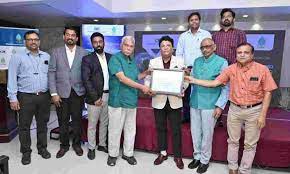
The Visakhapatnam railway station of East Coast Railway has been awarded the ‘Green Railway Station Certification with the highest rating of Platinum’ by the Indian Green Building Council (IGBC).
- Green Railway Station Certification is a rating system developed by the Confederation of Indian Industry and Indian Green Building Council with the support of the Environment Directorate of Indian Railway
- It is a voluntary and consensus-based programme.
- This is the first of its kind holistic rating in India to address environmental sustainability in Indian railway stations.
- Indian Green Building Council (IGBC) is part of the Confederation of Indian Industry (CII) formed in the year 2001.
- The council offers a wide array of services which include developing new green building rating programmes, certification services and green building training programmes.
- The council also organises Green Building Congress, its annual flagship event on green buildings.
- The council is committee-based, member-driven and consensus-focused. All the stakeholders, corporate, Government, academia and nodal agencies participate in the council activities through local chapters.
- The council also closely works with several State Governments, Central Government, World Green Building Council, and bilateral multi-lateral agencies in promoting green building concepts in the country.




